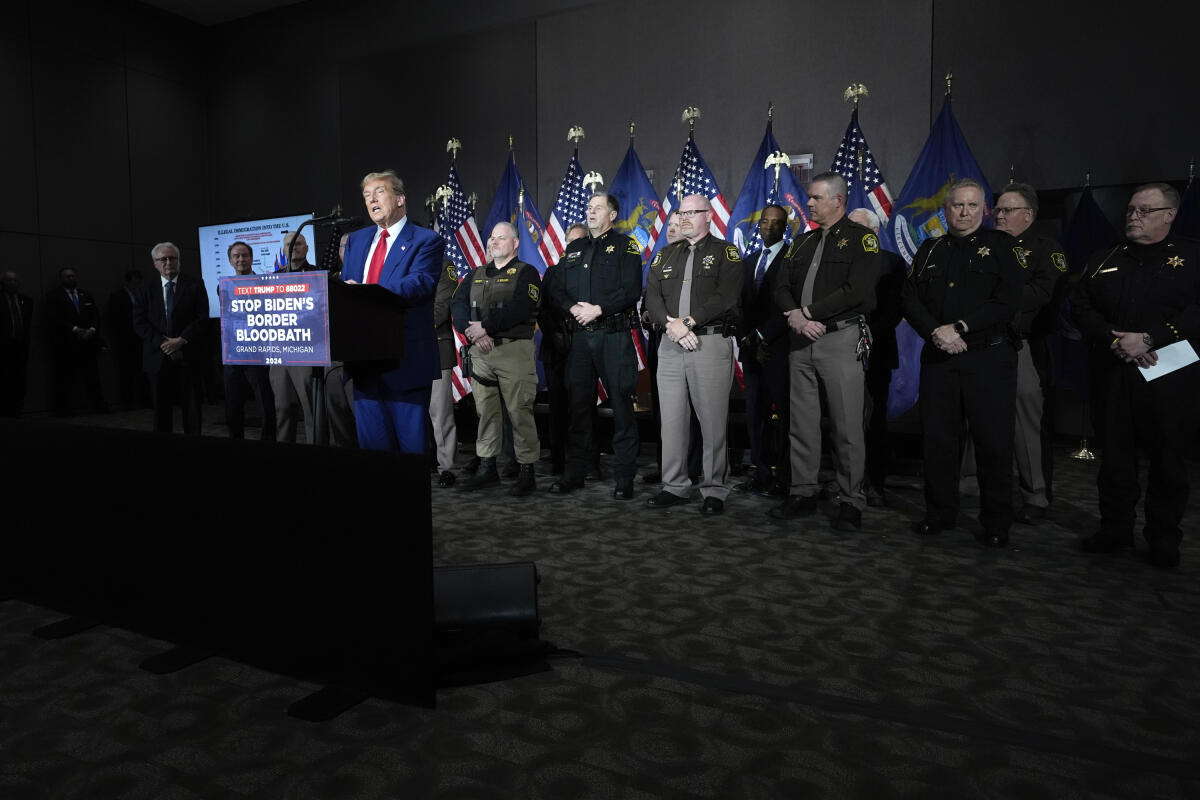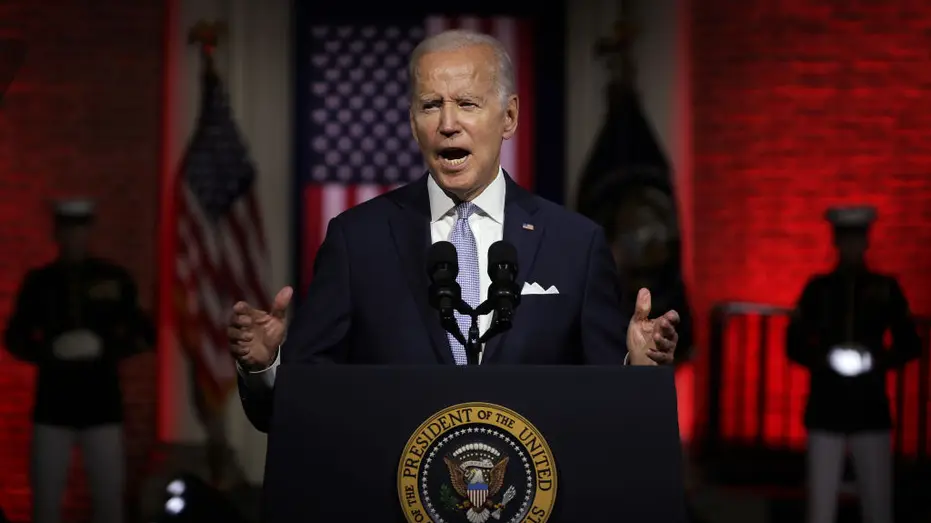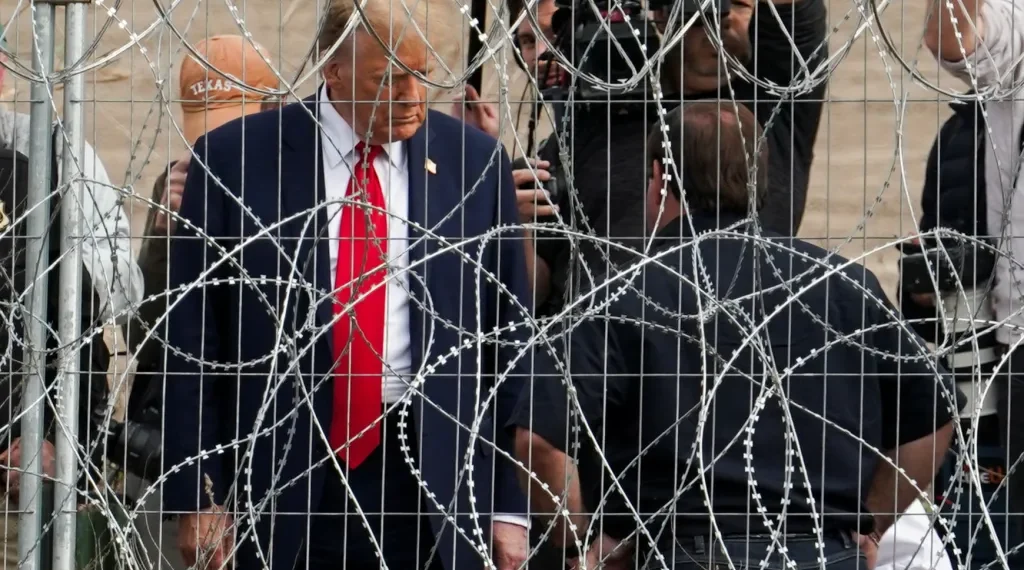In a campaign speech in Michigan, Donald Trump resurfaced his contentious rhetoric towards immigrants in the United States, branding those in the country illegally as “animals” and “not human.”
Trump, flanked by law enforcement officials, painted a grim picture of potential chaos and violence should he fail to secure victory in the upcoming election, citing specific criminal cases involving undocumented immigrants.
Continuing his discourse in Green Bay, Wisconsin, Trump framed the upcoming 2024 election as a decisive moment for the nation, employing a tone of urgency and apprehension.

He underscored his stance on immigration and crime by referencing recent incidents involving suspects in the country unlawfully, reinforcing his campaign narrative.
Despite Trump’s assertions, Democratic President Joe Biden criticized his divisive rhetoric, accusing him of fostering division and animosity.
Trump’s speeches focus heavily on immigration-related incidents, aimed at tapping into voter fears and insecurities surrounding crime and illegal immigration.
While Trump emphasizes the potential dangers posed by undocumented immigrants, researchers caution against generalizations, pointing out that available data does not support claims of higher crime rates among immigrants compared to native-born citizens.

Biden, in contrast, advocates for policies aimed at fostering unity and inclusivity, urging a departure from Trump’s divisive rhetoric.
Trump’s narrative surrounding immigration and crime serves as a cornerstone of his campaign strategy, aiming to galvanize support by playing on public concerns and fears.
However, critics argue that such rhetoric further polarizes an already divided electorate, exacerbating tensions and hindering efforts toward national unity.














